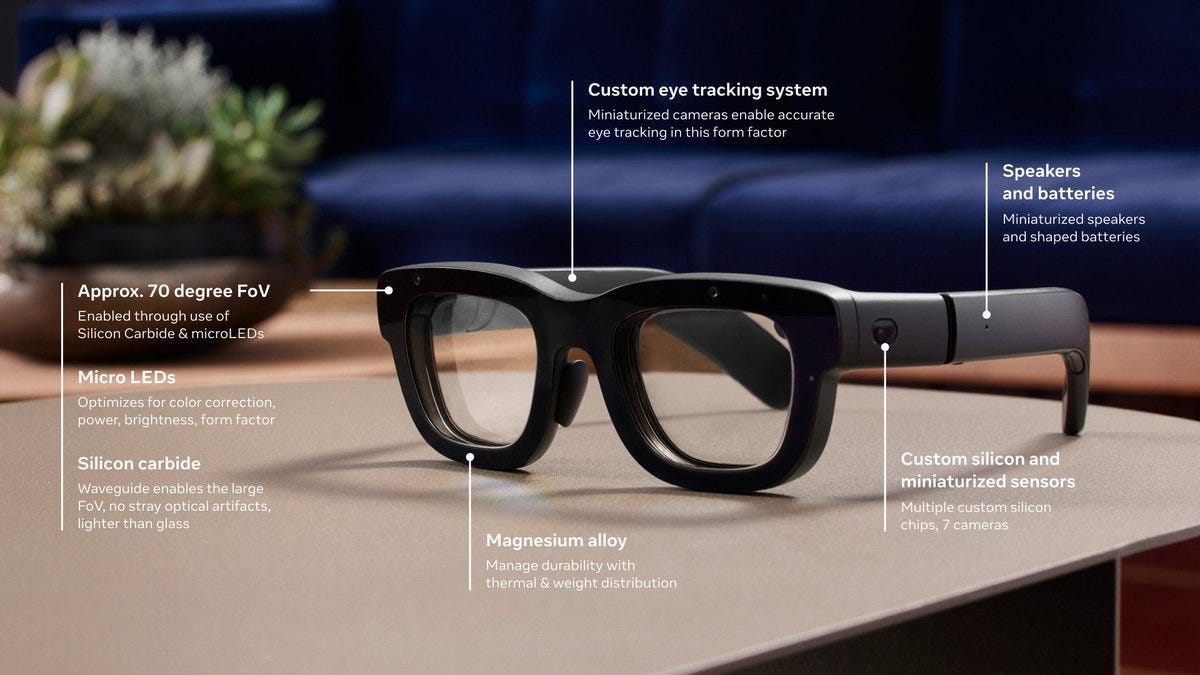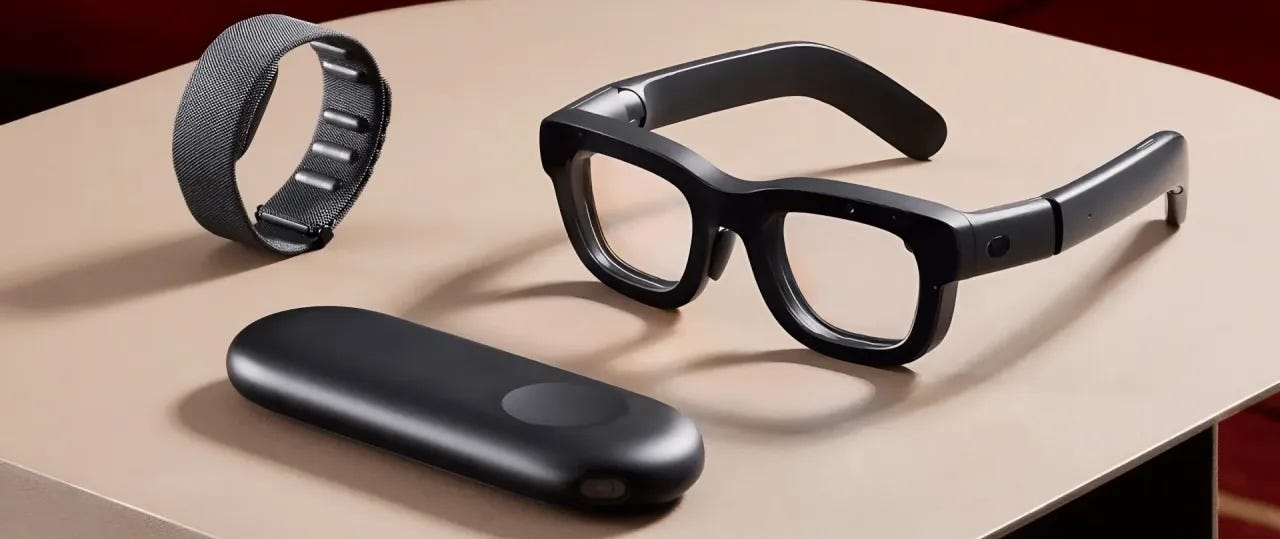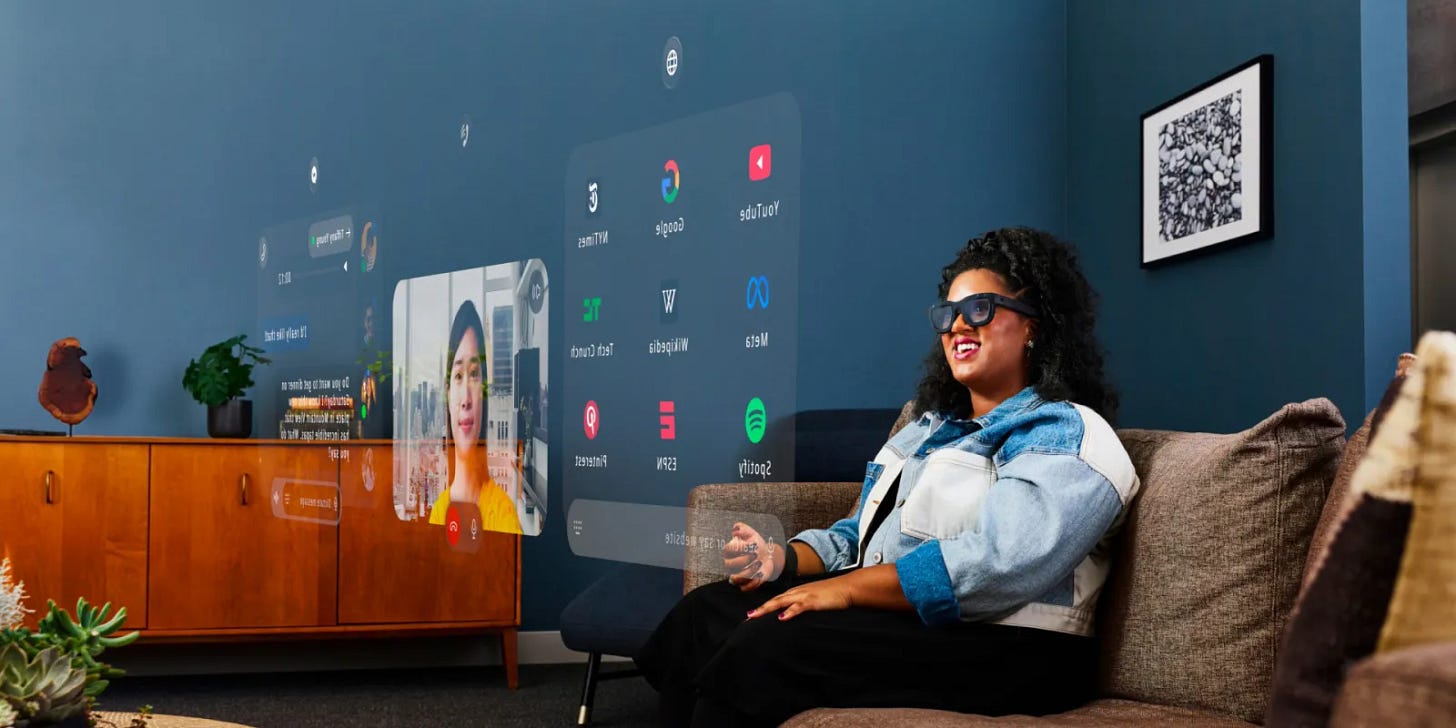Orion glasses: Meta’s bold move to replace the smartphone
At Meta Connect 2024, Mark Zuckerberg unveiled Orion, Meta’s first holographic AR glasses, a product of ten years of development. Weighing just 100 grams, these glasses boast a 70-degree field of view, holographic displays, and a personalized AI assistant. With advanced features like eye and hand tracking, voice control, and a neural wristband that “reads” your thoughts, Orion promises seamless interaction between physical and digital worlds.
“I’d say these are the best glasses in the world,” Zuckerberg proudly declared, holding up the Superman style Orion glasses. Behind them lies Meta’s multibillion-dollar bet on the post-smartphone era.
The lightest, smallest, and widest-view AR glasses
AR glasses essentially serve as high-powered computers you can wear on your face. Traditionally, such devices have been heavy, hot, with low resolution and a limited field of view.
Orion, however, closely resembles regular glasses, weighing just 100 grams—over half the weight of Snap’s Spectacles 5 released last week and a mere one-sixth of Apple’s Vision Pro headset.
It also features the largest 70-degree field of view in any AR glasses this small, a feat the team has dubbed the “Holy Grail.” This wider field unlocks immersive experiences like multi-tasking with multiple windows, large-screen entertainment, and life-size holographic figures.
The lightweight, durable silicon carbide lenses offer ultra-high refractive index without optical artifacts or stray light. The frame, made from magnesium used in Formula 1 cars and spacecraft, keeps the optical elements aligned while efficiently dissipating heat.
Packed with precision technology that “challenges the laws of physics,” Orion’s frames house uLED micro projectors that beam light into the waveguides in the lenses. These waveguides, with nanoscale 3D structures, refract light to project images at various depths and sizes right before your eyes.
All of this is powered by Meta’s custom-designed chips and sensors, ensuring powerful computing with low energy consumption, driven by batteries built into the frame. Seven tiny cameras embedded along the frame’s edges capture real-time inputs, with components compressed to millimeter scale.
“Mind reading” interaction
Orion’s control system seamlessly integrates voice input, eye tracking, and hand-tracking technologies. You can activate Meta AI with just a command or select functions by looking at interface elements or using hand gestures.
But what if you’re in a public setting, don’t want to talk, or make obvious hand gestures?
Meta has you covered—Orion can “read your mind.”
This is Orion’s standout feature. The hardware consists of three components: the Orion glasses, an EMG neural wristband, and a wireless computing device the size of a smartphone battery.
And the neural wristband is the secret to freeing up traditional interactions. It looks like a typical smartwatch band and magnetically snaps onto your wrist. With high-performance textile materials and embedded EMG sensors, it detects the electrical signals generated by tiny muscle movements. The wristband’s ML processor then decodes these signals into actions, wirelessly transmitting them to the glasses in milliseconds.
Tested by The Verge, the wristband accurately recognized gestures like pinching fingers to select items or making a “coin flip” motion to scroll.
A pocket-sized computing
Unlike Snap’s fully standalone Spectacles, Meta introduced a wireless computing module, lightening the load on the glasses and extending battery life while maintaining low latency. The module handles advanced processing, allowing for a smooth and immersive AR experience.
AR capabilities and future plans
Orion lets users browse the web, play 3D games, and multitask with ease. Powered by Meta AI, it provides personalized assistance based on your surroundings and preferences. Although not available for sale yet, only 1,000 units will be produced for internal development and limited partnerships to refine the experience.
Zuckerberg hints that when Orion 2 launches, it will be Meta’s first consumer-grade holographic AR glasses. “Orion gives us a thrilling preview of the future,” he said, underscoring Meta’s vision for the next platform shift beyond smartphones.










